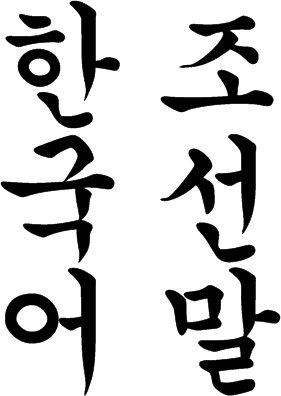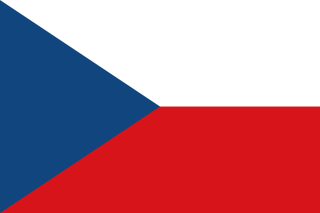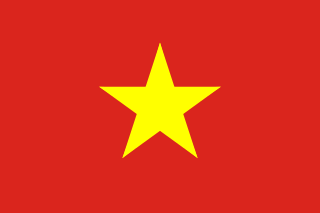
Duolingo에서:
- 아이들이 조금 이야기합니다. – The children talk a little.
- 개와 고양이가 한국어로 대화합니다. – The dog and the cat talk in Korean.
- 저는 한국어를 잘합니다. – I speak Korean well.
- 아이들이 말합니다. – The children talk.
- 한국어와 영어 – Korean and English
- 저는 대화합니다. – I talk.

From Duolingo:
- pum afal – five apples
- chwe oren – six oranges
- can tŷ -a hundred houses
- y llygoden fawr – the big mouse
- y ddafad fach – the small sheep
- yr arth gyflym – the fast bear
- yr arth fawr gyflym – the big fast bear
- saith neidr – seven snakes
- pedwar ci – four dogs
- wyth ceffyl – eight horses
- tri phanda – three pandas
- chwe theigr – six tigers
- tri chranc – three crabs
- saith o nadroedd – seven snakes
- wyth o gŵn – eight dogs
- deg o geffylau – ten horses

- そこに座わって下さい。 – Sit there please.
- お店を今明けて下さい。 – Open the store now please.
- 窓を明けます。 – I open the window.
- 水を飲んで下さい。 – Please drink water.
- 窓を閉めて下さい。 – Please close the window.
- 窓を閉めます。 – I close the window.
- 野菜を食べて下さい。 – Please eat vegetables.
- 一緒に座わりましょう。 – Let’s sit together.

Od Duolingo:
- Jsem dívka nebo chlapec? – Am I a girl or a boy?
- Je Kateřina vysoká? – Is Kateřina tall?
- Jsou Matěj a Kateřina manželé? – Are Matěj and Kateřina husband and wife?
- Nepiju pivo. – I am not drinking beer.
- Děti nepijou víno. – Children do not drink wine.
- Sýr nesnášíme. – We cannot stand cheese.

From Duolingo (review):
- התה שלי ורוד. – My tea is pink.
- זה גזר כתום. – This is an orange carrot.
- זה צבע סגול. – This is a purple color.
- התפוח הירוק חמוץ. – The green apple is sour.
- הוא צובע את הבגדים שלו. – He paints his clothes.
- הכובע שלי צהוב. – My hat is yellow.
- הוא לובש מכנסיים סגולים. – He is wearing purple trousers.
- אני צובעת ביצה. – I’m painting an egg.
- אנחנו רוצים תפוזים כתומים. – We want orange oranges.
- הפיל האפור הולך. – The grey elephant is going.
- יש לי שמלה סגולה. – I have a purple dress.
- אני רוצה צעיף ירוק. – I want a green scarf.
- לא לצבוע את החולצה שלה! – Don’t dye her shirt!
- הפרה החומה אוהבת מים. – The brown cow likes water.
- אני אוכל עוגה צבעונית. – I’m eating a colourful cake.
- הוא לובש מעיל צבעוני. – He is wearing a colourful coat.
- הוא צובע את הבגדים שלו. – He is painting his clothes.
- הציפור אפורה. – The bird is gray.
- פלפלים הם אדומים, כתומים, צהובים או ירוקים. – Peppers are red, orange, yellow or green.

O Duolingo:
- Dw i eisiau yfed lemonêd. – I want to drink lemonade.
- Mae hi eisiau yfed coffi. – She wants to drink coffee.
- Ydyn ni eisiau yfed gwin? – Do we want to drink wine?
- Dyn ni eisiau mynd adre. – We want to go home.
- Dw i eisiau blodfresych. – I want cauliflower.
- Maen nhw eisiau te. – They want tea.
- Dych chi ddim eisiau coffi. – You don’t want a coffee.
- Mae hi eisiau mynd adre. – She wants to go home.
- Nac ydy, dydy e ddim eisiau siocled. – No, he does not want chocolate.
- Mae hi eisiau bara. – She wants bread.
- Dwyt ti ddim eisiau nofio. – You don’t want to swim.
- Ydyn ni eisiau siocled? – Do we want chocolate?
- Dw i’n gweld. – I see.
- Mae hi eisiau reis. – She wants rice.
- Wyt ti eisiau lemonêd? – Do you want lemonade?
- Mae’r athrawes yn mynd adre. – The teacher goes home.

Od Duolingo:
- Mléko tady kupuji zřídka. – I rarely buy milk here.
- To vždy říká moje matka! – My mother always says that!
- On nikdy nespí. – He never sleeps.
- Její manžel stále spí. – Her husband is always sleeping.
- Jak často to říkáš? – How often do you say that?
- On někdy kupuje mléko tady. – He sometimes buys milk here.

Od Duolingo:
- Jaký je František? – What is František like?
- Který muž je Matěj? – Which man is Matěj?
- Je to veliké? – Is it big?
- Které dítě to je? – Which child is it?
- Jsi hoch? – Are you a boy?
- Kde je ten automobil? – Where is that car?

Od Duolingo:
- Je ten člověk mladý nebo starý? – Is that person young or old?
- Jsem veliký? – Am I big?
- Čí je ta mašina? – Whose machine is that?
- Jaké je to město? – What is that city like?
- Jak vysoké je to děvče? – How tall is that girl?
- Která žena je Žofie? – Which woman is Žofie?

Từ Duolingo:
- Tôi mua một cái ghế bình thường. – I buy a normal chair
- Nó là một cái muỗng ngắn. – It is a short spoon.
- Chúng tôi rất tốt. – We are very good.
- Nghĩ tích cực. – Think positive.
- Tôi có một cái máy tính hiện đại. – I have a modern computer.
- Con rắn rất dài. – The snake is very long.
- Con mèo của cô ấy có bình thường không? – Is her cat normal?
- Nó là một cái muỗng ngắn. – It is a short spoon.
- Bạn là một cô gái tốt. – You are a good girl.
- Chiếc điện thoại hiện đại ở đâu? – Where is the modern phone?
- Họ ăn những trái chuối ngắn. – They eat short bananas.
- Con voi đọc một quyển sách tích cực. – The elephant reads a positive book.
- Cái đồng hồ của anh ấy rất tốt. – His watch is very good.
- Tôi không bình thường. – I am not normal.
Learn all the Languages!